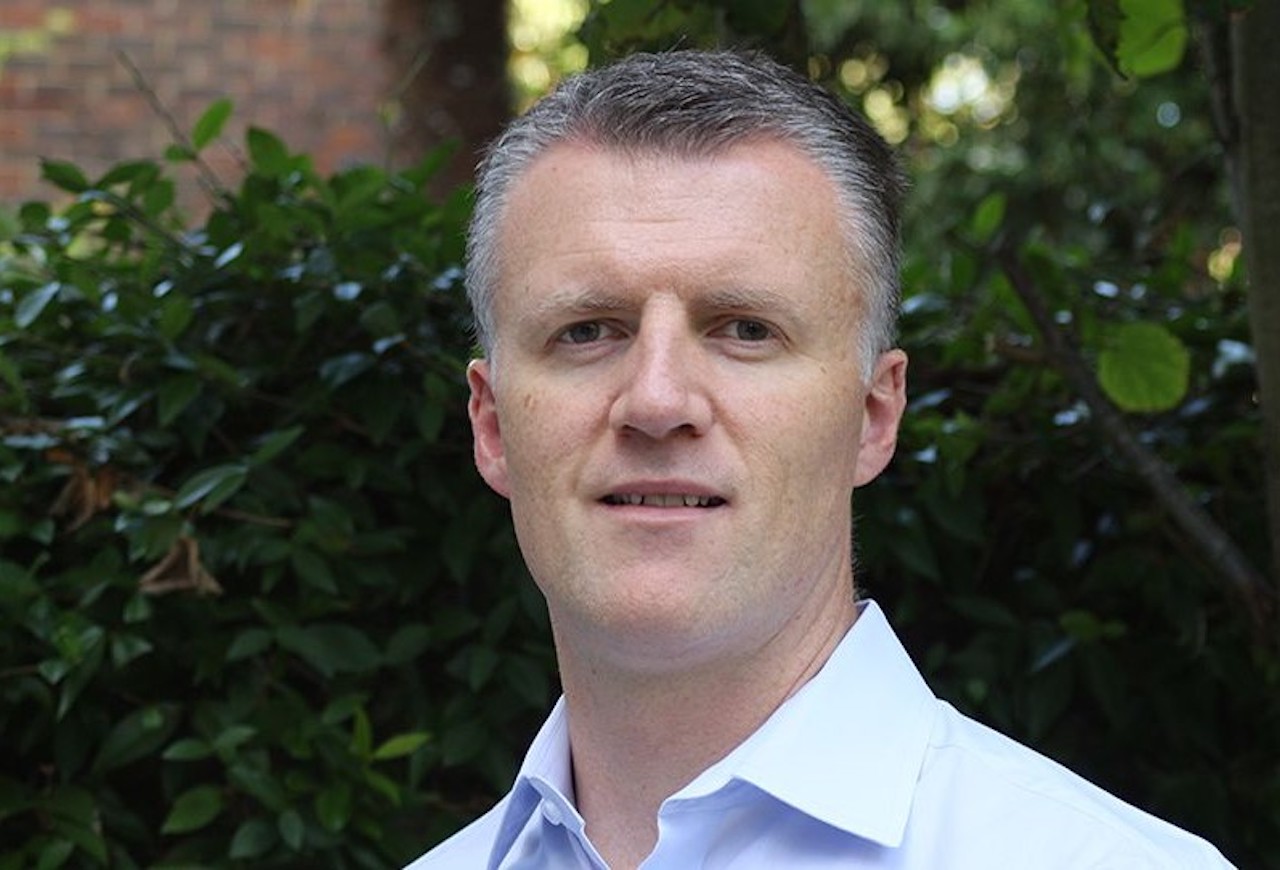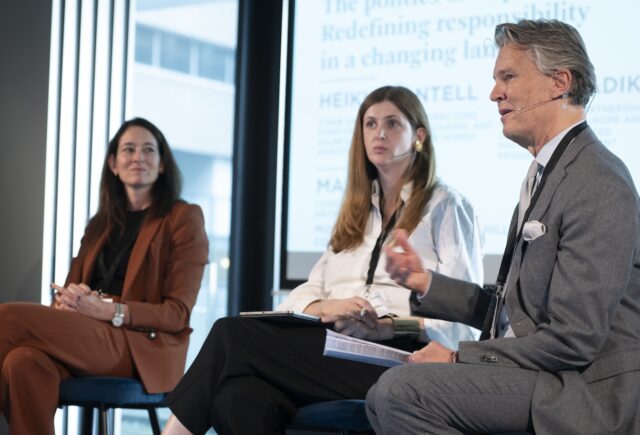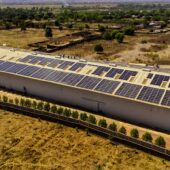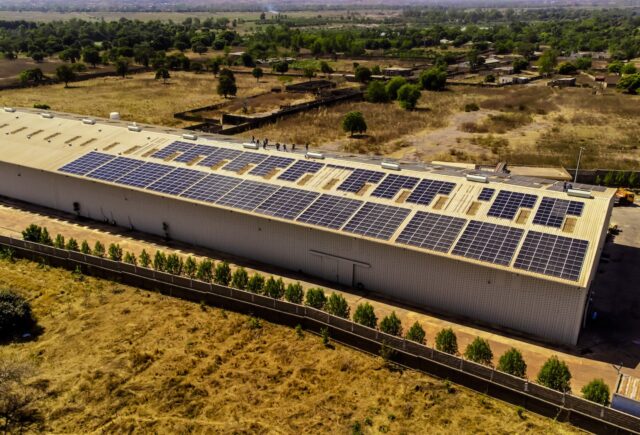Impact investor Snowball has expanded rapidly since it was founded seven years ago. We asked CIO Sean Farrell about his approach to developing a healthy portfolio in an uncertain investment climate.

Investment conditions over the last two years have been challenging for impact investors, but Sean Farrell, chief investment officer of UK-based Snowball, believes the multi asset fund’s diversified investment strategy is helping to mitigate the negative effects of short-term market volatility, while still delivering on impact.
Farrell joined as CIO in September 2022, making his first foray into impact investing having previously worked in the mainstream financial investors, such as Partners Capital, 3i Group and Goldman Sachs.
He tells Impact Investor investors such as Snowball provided an opportunity to challenge the financial orthodoxy he had seen at work throughout his previous career by showing that it was possible to generate the returns sought by, for example, a charitable foundation family or individual investor, while also producing impact.
“If we can succeed in showing that this is a better way to do things, it will help to draw more capital in. So that’s really motivational and exciting,” he says.
Snowball’s history reflects the growing interest in impact investing. The company was founded in 2016 by six family offices and foundations to provide scalable impact investing opportunities that would not be available to individual entities working alone. Since then, it has developed into a fund supported by 41 investors, with £33m assets under management, including investments in 500 companies underlying the funds in which it invests. Since 2019, its chief executive has been Daniela Barone Soares, who previously had a high profile career in the UK charity, impact and commercial investment sectors.
Impact themes
The fund seeks to generate positive social and environmental impact by investing in six key themes: the energy transition, resource efficiency, regenerative ecosystems, homes and communities, equity and inclusion, and health and wellbeing. The fund is approximately 60% invested in the UK and the rest of Europe, with nearly 20% in North America and the remainder in Asia, Latin America, and Africa.
The fund’s net return was -0.5% for the second quarter 2023, +0.4% for the year to end-June, data which reflects the difficult climate for investors in general, but which, Farrell stresses, is in line with Asset Risk Consultants’ ‘balanced’ portfolio benchmark. He adds the emphasis would remain on maintaining a highly diverse portfolio to counter volatility in financial markets.
“We aren’t making any dramatic shift in investment strategy, just gradual refinements, because the current macro-economic conditions are a bit different. That means having even more focus on diversification and uncorrelated investments as a source of value in terms of risk-adjusted returns,” he says.
One holding reflecting this strategy is Snowball’s recent unspecified investment in the Aristata Impact Litigation Fund, which closed at £52m earlier this year. The fund supports commercial litigation brought by disadvantaged groups around the world in response to damaging activity by companies, where a win would have a beneficial and wide-ranging outcome in terms of impact.
“To do a litigation fund with an impact focus is new. We saw an opportunity because the expected return is very compelling and also quite non-correlated with traditional asset classes, while the impact return could be really outsized” Farrell comments.
Elsewhere in the portfolio, in line with the diversification strategy, Snowball’s renewable energy infrastructure investments generate revenues that correlate to an extent with inflation, while investments in public and private equity give the fund wider exposure. Farrell says its investments in social and supported housing could be seen as defensive, given the sector’s track record of providing reliable rental income to investors over a long period.
Some of the best performers have been companies in the Impact Venture and Growth Capital segment of Snowball’s portfolio, which seeks to invest in funds that back firms with the potential to grow to a large scale. This segment returned nearly 15% over the year to June, despite holding a large proportion of immature funds, according to the fund.
One’s of Snowball’s largest underlying holdings is Indonesia’s eFishery, which provides fish and shrimp farmers with improved access to technology, feed, markets and finance, and is one of the region’s most successful recent agri-tech start-ups. It raised $200m in a Series D funding round earlier this year.
An investment in Circularity Capital, which invests in circular economy firms, has also produced successes, such as Grover, a German-based company that refurbishes and rents out used consumer electronics products. Snowball is also an investor in US-based fund manager Learn Capital, a pioneer in educational technology investment – a sector which, Farrell points out, is another that is fairly recession proof. Learn Capital is now raising its fifth fund.
One of the worst performing asset classes in the Snowball portfolio financially over recent months has been renewable energy infrastructure, which made a 6.8% loss in the second quarter 2023, mainly due to falls in listed investment trust share prices. Farrell says Snowball expects the sector to recover and continues to look for investment opportunities there.
Climate tech
The fund is actively looking for opportunities to invest in climate tech and ways to decarbonise electricity grids, such as virtual power plants, whereby power supply from batteries in EVs and elsewhere can be pooled to help balance grid fluctuations.
“If you’re helping to balance demand, and effectively enable additional trillions of dollars-worth of low carbon generation to exist in the grid, that’s a pretty compelling opportunity,” Farrell adds.
Impact measurement is another area of interest. The fund already has exposure in the sector, such as NatureMetrics, which provides companies with biodiversity data, demand for which is likely to increase as corporate nature reporting requirements become more stringent. Snowball has also partnered with Net Purpose, to help measure the impact of companies held within its own portfolio.





